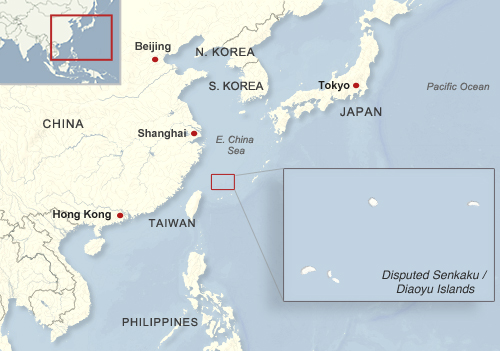China has declared an enhancement of patrols around a cluster of islands close to Taiwan. This move comes in the aftermath of an incident that led to the tragic deaths of two Chinese fishermen. The situation sheds light on the complex web of geopolitical tensions surrounding China, Taiwan, and neighboring territories, including disputes over maritime territories such as the Senkaku/Diaoyu Islands.
The critical incident took place near Kinmen, islands that are geographically closer to mainland China than Taiwan. The Taiwanese Coast Guard reported an encounter with a fishing boat registered in mainland China that had entered a maritime boundary unlawfully. When the vessel failed to comply with a stop request for inspection, a chase ensued, leading to the capsizing of the boat. This unfortunate event resulted in the rescue of two crew members, while two others were lost to the sea. The Taiwan Affairs Office in Beijing responded by condemning the incident, attributing blame to Taiwan’s governing Democratic People’s Party for what it perceives as aggressive and unjust treatment of mainland fishermen.
Public reaction in China to the fishermen’s deaths was strong, with many expressing anger and calling for measures against Taiwan. Despite this, experts have noted that China’s official stance has been somewhat measured, perhaps acknowledging the illicit actions of the fishing boat involved. The incident has further complicated the already delicate relations between China and Taiwan but has not escalated to a military standoff. It does, however, add another layer to the intricate relations between China and its neighbors, especially in light of China’s broader maritime ambitions.
Parallel to this, China’s increased military and maritime activities around the Senkaku/Diaoyu Islands, a territory disputed with Japan, have raised concerns in Tokyo. These actions are interpreted as efforts by China to affirm its territorial claims, reflecting Xi Jinping’s focus on maritime interests and nationalistic sentiment as central to China’s domestic and international policy. Japan, in response, has been compelled to bolster its surveillance and defense capabilities against potential Chinese encroachments in these contested regions.
These recent incidents are indicative of the broader strategic dynamics in the region, where territorial sovereignty, national identity, and maritime rights are deeply interconnected with the overarching geopolitical competition in the Asia-Pacific. As China continues to assert its maritime claims and expand its presence in the waters near Taiwan and the disputed Senkaku/Diaoyu Islands, the international community remains vigilant, understanding the implications these tensions hold for regional stability and security.
Image is in the public domain.









